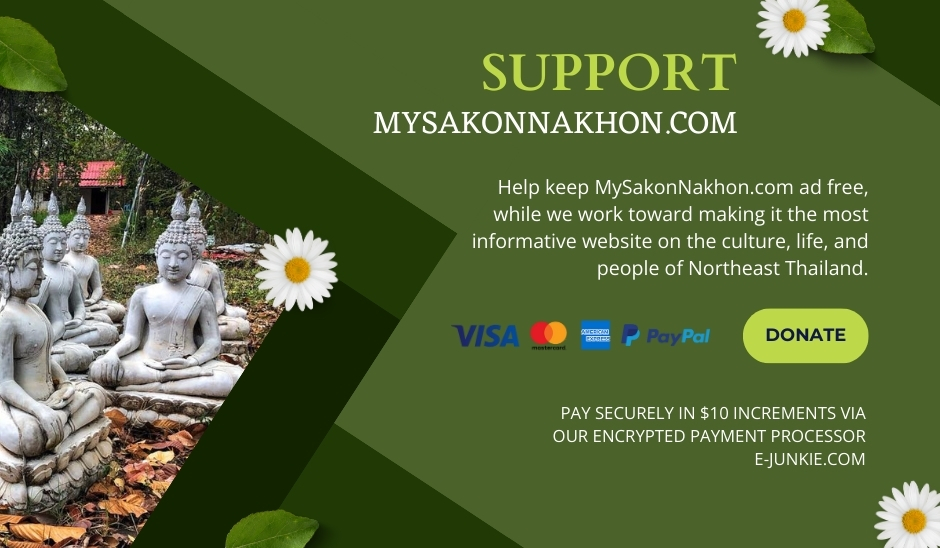
Working in Sakon Nakhon

When Americans, Brits, and other farangs start entertaining the idea of working in Sakon Nakhon (or Thailand in general), this often means taking a teaching position. However, today’s advice on working in Sakon Nakhon covers all job seekers.
The topic of working in Thailand is too large cover all in one post, so we are going to discuss only one issue: the necessity of setting boundaries. Whether you are teaching in Sakon Nakhon or working at a small or large company, you can expect your boss to test where your boundaries are when it comes to extra work and personal favors.
If you are a teacher in Sakon Nakhon, this test may include requests to work weekend or evening classes, editing faculty dissertations, and tutoring teachers and administrators. If you are a business professional, it may also include weekend and evening work, the English tutoring of fellow staff, help with entrance applications to universities abroad, and other English related tasks that go beyond your formal job description and regular work hours.
You need to think about this carefully when working in Thailand, and decide what extra work you are willing to do when asked; what work you are willing to do for free; and what work will require extra cash. If you want your contract renewed, we don’t advise turning down all requests to do extra work. We also don’t advise accepting payment for every English related favor — even when cash is offered.
As a foreigner working in Sakon Nakhon, you should be aware that your fellow Thai colleagues are frequently asked to do extra work also. It is not something asked only of foreigners. It is part of job when working in Thailand. You just want to be sure that when you decline to do certain things, you make up for it by accepting to do (or offering to do) other things. Life is about establishing happy balances. And working in Thailand is no different.
When establishing your extra work boundaries, we suggest speaking in Thai when declining a request. This means that you should occasionally practice your Thai language skills with your colleagues and employer from the beginning of your work relationship — so that they can see you are making an attempt to go native, and to make sure that your spoken Thai isn’t totally incomprehensible.
Speaking in the Thai language when turning down a request to do extra work also has its benefits, as it will often leave you off the hook for having to explain your refusal. So, here is what you you should say when declining a request.
ขอโทษ ไม่ได้ครับ ช่วงนี้ผมยุ่งอยู่ครับ
Khăw-thôt. Mâi dâi khráp. Chûang-née phŏm yûng yòo khráp.
Apologize. Not can (polite). This-period-of-time I busy am (polite).
I’m sorry, but I can’t. Right now I’m just too busy.
Thai Language Tip: Usually the above Thai sentence will be enough to put an end to the conversation in a polite manner. However, sometimes your boss or colleague may ask you what you are actually doing. If that happens, simply respond with the following Thai phrase: Mee thú-rá khráp (มีธุระครับ), which means that you have some affairs to attend to and will put a polite but definite end to this topic of conversation.
- The Royal Ploughing Ceremony in Thailand – A History - May 8, 2024
- Dying Well the Buddhist Way in Thailand - May 7, 2024
- Comforting Words for the Brokenhearted in Thailand - May 6, 2024




